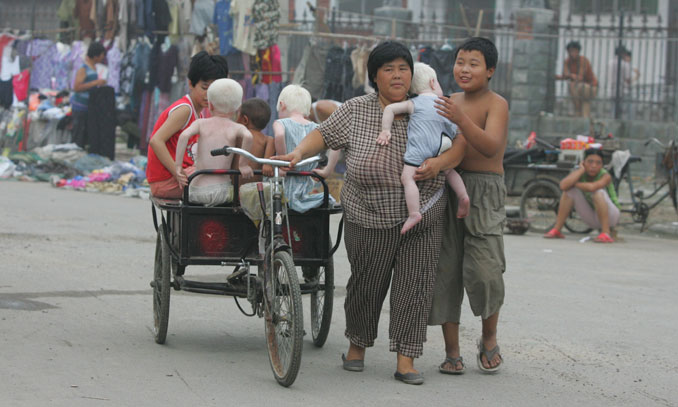Govt accepts blame for blaze

The local government in Lankao, Central China's Henan Province, acknowledged Saturday that it should bear the responsibility for failing to supervise the adoption of abandoned children in the wake of a fatal fire that killed seven children at a foster home established by a local woman.
The fire, which broke out on Friday, has put Yuan Lihai, 47, who has adopted over 100 children over the past 26 years, in the public spotlight. The local government has also been criticized over the tragedy.
Wu Changsheng, the deputy head of the county, told reporters Saturday that local civil affairs departments didn't properly supervise Yuan's adoption of the children, and that they bore "unshirkable responsibilities" for the tragedy.
According to adoption laws, to adopt a child, parents should meet several criteria, including not having offspring and being capable of raising the child.
Wu said that from a legal perspective, Yuan, who has two sons and one daughter, was not qualified to adopt a child. He added that on the other hand, from a humanitarian perspective, Yuan showed great sympathy for the abandoned, and took on responsibilities on behalf of the less fortunate. Yuan said that under these circumstances, the civil affairs bureau allowed her to adopt these children and took measures to help her, and also tried to persuade her to send kids away to welfare houses.
Welfare houses are government-run facilities in China that look after disadvantaged groups such as orphans, the disabled and sometimes the elderly.
The civil affairs bureau talked Yuan into sending 10 children to a welfare house in Kaifeng, Wu said.
Kaifeng authorities are responsible for administering the Lankao area.
"Some of our measures failed to meet regulations, and led to de facto recognition of her behavior and today's tragedy. We do have loopholes in our work," Wu said.
The recent statement by the local government differed from original claims it made after the fire, which had said Yuan was guilty of "illegal adoption."
An investigation into the cause of the fire was still underway on Saturday, with no further information available, Sun Lisheng, a publicity official from the local government, told the Global Times.
Meanwhile, the government also denied reports that Yuan is being detained by police. An anonymous head of the investigation team said that related departments had finished questioning Yuan, adding that she has been treated properly and is with her family.
Yuan is seen as a good Samaritan by her neighbors despite lingering doubts over her capability to take good care of the children and her motives.
Some criticized Yuan's adoption of abandoned children by saying she was trying to make a profit, because the local government provides subsistence allowances for the children. She was also accused of trying to take money from people who came to adopt children.
"As she adopted the kids, Yuan should shoulder the responsibility for those kids. She shouldn't have left them alone," Feng Xiaoyu, a local taxi driver, told the Global Times.
An injured 10-year-old boy was still in intensive care at the Kaifeng No.2 People's Hospital.
There were ten other children who had been adopted by Yuan and lived with her, including 7-month-old Yuan Dongdong and one-year-old Yuan Niu. They have been sent to a welfare house in Kaifeng.
"It's not a single case, as Henan has a huge population and not-such-a-good economy, and many families are living in poverty, so it is not uncommon for them to abandon kids when they cannot make ends meet," said Zhou Penglei, a publicity official in Lankao.
Lankao, which is among the poorest counties in the underdeveloped province of Henan, has no orphanage.
The fire has aroused provocative discussions on how the local government and society can cooperate in coping with the abandoned kids, to prevent such a tragedy from happening again.
Yu Shaoxiang, an associate researcher on law with the Chinese Academy of Social Sciences, called Yuan's case "negligence of duty" by the Lankao government, and said they should have either stopped Yuan in the beginning when they found her incapable of adopting so many children, or given official approval for her to open a care center and provided financial aid and supervision to ensure safety.
Wang Zhenyao, a former senior official at the Ministry of Civil Affairs, told the Global Times that China encourages family adoptions, which are better than orphanages in shaping children's character, but the government has not been providing sufficient assistance to these families and individuals.
He called for legislation on child welfare to include children with disabilities in China's social welfare system so that there will be fewer abandoned children.
Yan Shuang contributed to this story.